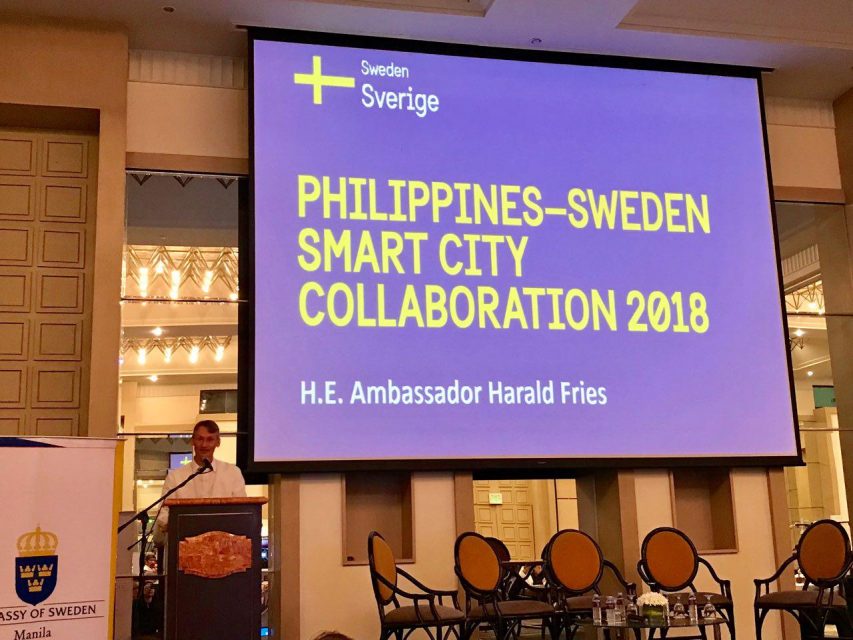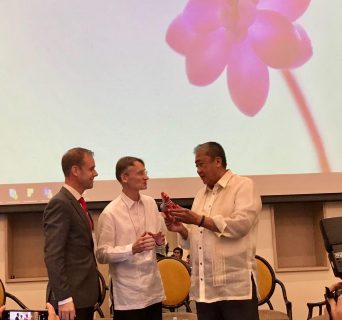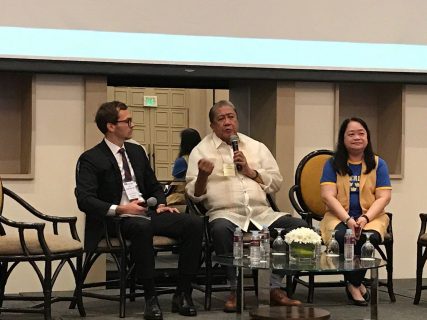
By Caesar Vallejos, Eagle News Service
Sharing best practices, solutions and experiences in the areas of energy, transport and public safety in support of building smart and sustainable cities of the future, key executives from the Philippine government and business sector gathered with their Swedish counterparts at the first Philippine-Sweden Smart City Collaboration held at the Quest Hotel, Clark Freeport Zone last October 4, 2018.
“This collaboration comes at a critical time when cities and communities around the world are facing new challenges in providing decent quality of life for its citizens. Rapid urbanization continues to have impact on livability,” Sweden Ambassador to the Philippines Harald Fries said.
Smart cities in Sweden
In his welcome remarks, Ambassador Fries shared that by 2050, the estimated share of global urban population in total population is projected to have risen to 68% from 55% today.
“In the Philippines, the rate is now at 44%. Sweden is already at 86%. Sweden is strongly committed to the sustainability goals and in the inclusive, safe, resilient and sustainable human settlements. Sweden has been ranked as best positioned to achieve the sustainable development goals,” the Ambassador expressed.
He also emphasized that the “development and execution of smart city programs requires cooperation across a wide range of stakeholders with the academia, private sector, government and the citizens.”
“Given the paramount importance of building the quality of life for Filipinos today and the next generations, it is my wish that this collaboration is not a one-time exercise. I hope that it will be a good start,” he said.
Fries cited smart cities in Sweden as potential models for development. “ We have the district Hammarby Sjöstad, an eco-friendly urban development in Stockholm and in Gothenburg with 65% of transport that runs in renewable energy; and the upcoming Stockholm Royal Seaport which targets to be fossil fuel free by 2030,” he said.
The Bases Conversion and Development Authority (BCDA) Executive Vice President Aileen Soza who was able to visit two smart cities in Sweden said that in developing smart cities,” there must be emphasis on giving back the city’s roads and streets to pedestrians to be more walkable, and technology has a great role for the next generation of transport and travel.”
“In building a smart city, you don’t look at 5 years from now but you look at 20 years from now and therefore you have to be inward-looking and be future-proof in your plans,” she said. Soza presented the masterplan of BCDA at the conference.
Smart infrastructure
For his part, Department of Transportation Secretary Arthur Tugade talked about the need for a smart infrastructure that is powered by technology.

“World Bank data shows that the Philippines is 20 years behind the expected infrastructure that has to be in place for any country to be fully developed,” Secretary Tugade said. He mentioned that this created the impetus for President Rodrigo Duterte to declare that within his term, the Philippines will experience the Golden Age of Infrastructure.
“It will be an infrastructure that will provide mobility and interconnectivity within the country’s archipelago and with the rest of the world,” the Secretary said.
While the government has already undertaken several infrastructure projects from roads to bridges and farm roads to disaster remediable systems, Tugade said that these are not enough. “ We have to do a lot of planning and pushing so that we can achieve a smart infrastructure,” Tugade said.
Under the Build Build Build program of the Philippine government, Secretary Tugade detailed the various accomplishments in the four transport sectors: aviation, transport, maritime, railways and roads.
Tugade announced that the airport in Panglao, Bohol that uses solar panels in one of its buildings will be operational by November.
“We also put up a facility of satellite navigation system that has never existed before. Any object that flies the skies of the Philippines will now be identified and detected,” he said. He also mentioned that the only three radars used in the past 32 years has been added with additional 10 radars to complement the communication, navigation and surveillance systems.
Before the end of President Duterte’s term, Tugade said that the railway track system would have increased from 77 to 1,900 kilometers.
“These will be double tracks powered by electricity. The subway project loan agreement has also been signed. Groundbreaking will commence end of this year, two quarters ahead of schedule,” he cited.
Tugade addressed the businessmen present at the gathering to “invest in the Philippines.” Investments should include “complementary facilities that use the infrastructure, providing connectivity and mobility,” he added.

The Secretary echoed President Rodrigo Duterte’s statement that “investors will have a fair return of your investment and as you do your business, you will be complemented with safety, peace and security.”
Challenges
Aside from Clark, Ulf Wennbom, Business Sweden Country Manager, Philippines, said that “we’re very interested in Davao, Cebu and Iloilo as our prime targets” for smart city collaboration.
The main pillars of the collaboration are in the areas of “intelligent transport solutions, public safety and digitalization in public safety using connected cameras; and renewable energy.”
Wennbonn cited bureaucracy and corruption as major challenges in investments. “There are commitments made but it takes quite a long time before projects are implemented. The administration is battling corruption and we also see change.”
However, he believes that it is a long battle and this may have affected the Philippines’ ranking in terms of ease of doing business in the country.
Assessing on the collaboration, he said that “it is sincere, it’s good that you have a drive from the private sector. It’s the private sector that actually drives this with support from the government. We hope that the academia side would also take a stronger part. We look at a lot of knowledge transfer, and we want to equip all Filipinos to innovate as we want to partner in industrial development,” Wennblom said.







